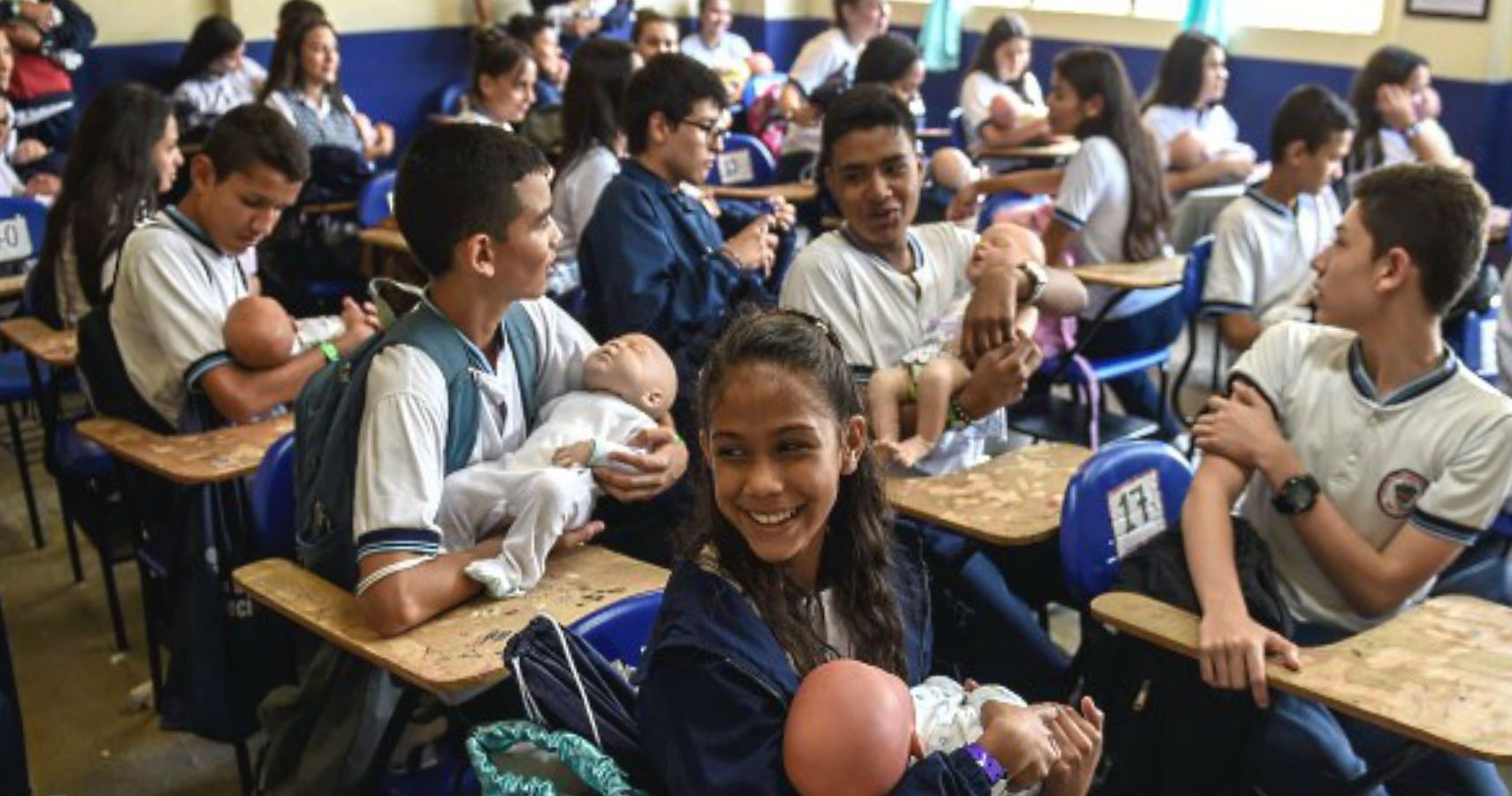What’s the best way to get kids to hopefully think twice before getting pregnant, especially during their teenage years? Apparently, some people think that the answer is to give them a baby robot so they can experience everything that comes with being a full-time parent without an actual human child in their hands.
For some health professionals and educators in Colombia, they believe that it’s the next best thing to preventing teen pregnancies. According to Yahoo News, a robot baby program was launched by local officials in a bid to help reduce the high rate of teen pregnancies in the Caldas region. And so far the program seems to be working.
One 13-year-old named Susana Ortegon was so relieved to give back her “robot baby” to her teachers simply because she couldn’t stand all of the crying that the automated doll did throughout the night. She said that the one weekend that she had her baby robot doll – named ‘Anthony’ – felt like an eternity for her.
Ortegon said, “This experience was pretty tough, it's not easy being a mommy or a daddy. It's awful! Awful! On top of that, the baby never stops crying and you've got to look after it all the time.”
The middle school student said that the baby’s cries were so loud that it even bothered her sleeping parents in the next room. The rubber doll, which comes complete with built-in software, cries whenever it wants to be fed, needs its diaper changed or simply wants a cuddle from his or her mom or dad.
The doll is so realistic that Ortegon got to experience what being a mother would feel like, should she end up having a baby of her own. Thankfully, the program has helped both Ortegon and many other teens – both males and females - her age think twice before getting intimate with a partner.
The robot baby program has been launched not only in schools in Colombia, but in 89 other countries, too. The initiative also includes a local social project that has both workshops and sex education classes available for teens.
In Colombia, a fifth of babies born in 2018 were to mothers that were aged 10 to 19. Many teachers say that the program has been well received by both parents and teens, despite the fact that many were opposed to sex education.

